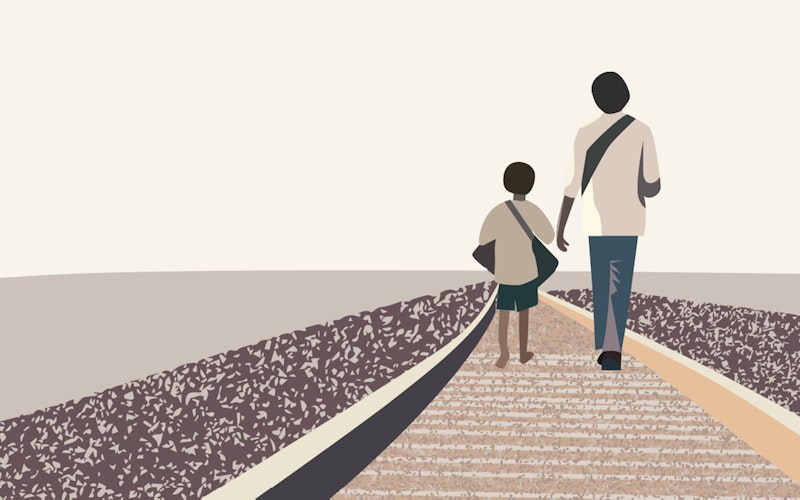
Movies
Lion: A Love That Knows No Borders
Editor’s note: This is part of a series on the 2017 Best Picture nominees. All of the articles are available as a pdf package here.
In one of his most famous speeches, "Remaining Awake Through a Great Revolution," Martin Luther King Jr. spoke about how “our jet planes have compressed into minutes distances that once took weeks and months.” His point was that “through our scientific and technological genius we've made of this world a neighborhood,” yet our goal should be to “make of it a brotherhood.”
I found my thoughts returning to these words as I watched Lion, a Best Picture nominee that involves technology which connects people on earth like never before. The film opens with stunning aerial photography of the mountains, hills, valleys, and plains of India. We have a God’s-eye view of Google Earth before swooping down to meet our protagonist as a 5-year-old boy. When we first see him, Saroo (Sunny Pawar) is standing alone in the hills mesmerized by a kaleidoscope of yellow butterflies fluttering around him.
A heart-tugging musical theme, featuring a lone piano surrounded by swelling strings, offers a striking juxtaposition to the ethereal beauty; both combine to paint a portrait of the desperate poverty that Saroo and his family live in. The young Pawar is a wonder in the lead role; he was cast specifically for the Charlie Chaplin-like quality he possesses, which enables you to know exactly what he’s thinking and feeling even when he doesn’t say a word.
Saroo spends his days with his beloved older brother Guddu (Abhishek Bharate), hopping freight trains to steal coal from unattended cars, which they sell to buy milk and food. Saroo’s incredible journey is set in motion when he and his brother become separated and he accidentally ends up as a stowaway on a train that takes him 1,600 miles away from his rural home to the bustling metropolis of Calcutta.
The psalmist writes that “God sets the lonely in families.”
After surviving for months in the Calcutta slums, narrowly avoiding unthinkable violence and exploitation at the hands of the men who prey on the weak in this city of lost children, Saroo ends up in an orphanage. When attempts to locate his family are unsuccessful, he is eventually adopted by a childless couple from Tasmania. His adopted parents are played by Nicole Kidman and David Wenham, who radiate an aura of empathy, love, and trustworthiness that allows Saroo to open his heart to them just as they have opened their hearts to him.
Despite having a happy home, when we meet Saroo as a young adult (played by Dev Patel) he seems marooned in his life. Questions about who he is and where he comes from begin to stir a dormant desire to find his first home. When classmates tell him about Google Earth, the die is cast and his quest to find his way back to his mother and brother begins.
In one of the film’s most powerful scenes, Saroo confesses to his adopted mother that a part of him wishes she could have had children of her own, because adopted children don’t come as blank pages but with their own complicated backstory. She in turn reveals that when she was a little girl she had a vision that she was going to adopt a child some day. With so many children born into extreme poverty, she and her husband decided to forgo having children of their own to give a better life to children in need.
The psalmist writes that “God sets the lonely in families.” There is a very real sense that it was no accident that little Saroo was brought to this specific family. No mention is made of their religious faith, but this couple seems driven by the conviction that we find in the gospel: that those who have been blessed by God have a responsibility to give out of their abundance to provide for “the least of these.”
My hope is that my brothers and sisters in the faith community who have been tempted to give in to the fear that leads to fortifying borders and keeping out refugees will see this film and be challenged. May we be inspired by this Christ-like example of a “perfect love” that “drives out fear.” And may we realize, as Martin Luther King Jr. did, that we have been knit together as the human family “in a single garment of destiny,” one that unites us across religious, cultural, political, racial, and geographic barriers.
Topics: Movies, Culture At Large, Arts & Leisure